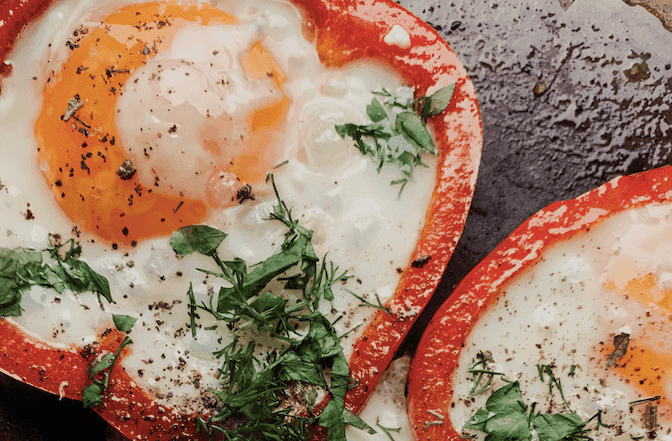The Importance of Choline for Brain Health
by Amylee Amos PhD, RDN, IFMCPNutrition
What is Choline?
Choline is an essential nutrient for the brain. It functions as a powerful neuroprotectant and is a precursor to the neurotransmitter acetylcholine which plays a critical role in memory formation and the creation and maintenance of synapses, the connections between brain cells. Additionally, choline is an essential component of phospholipid membranes including phosphatidylcholine. Membranes are mediators of cellular exchange and communication, so the integrity of their structure is critical to optimal function of the organism (1). Unfortunately, many people are unknowingly deficient or insufficient in choline, as this is not a biomarker routinely checked by physicians, nor is it a nutrient that’s high on most people’s radar (though it should be!).
Meeting Dietary Choline Needs
Humans can produce choline in the liver, though our own endogenous production is not sufficient to meet our choline needs, meaning that we also need to take in choline through foods. Meeting dietary choline needs is essential if you wish to optimize brain health. The goal for dietary choline intake is 550mg per day for men and 425 mg per day for women, with increased needs during pregnancy and lactation (1). Getting enough choline can be challenging when following certain dietary patterns. Many foods that are high in choline are generally animal based foods such as liver, eggs, beef, poultry, and fish. If you follow a strict vegan diet, meeting choline needs is difficult, though not impossible. Certain plant foods also contain decent amounts of choline, such as beans (in particular soybeans, kidney beans, and garbanzo beans), cruciferous vegetables (in particular brussels sprouts, broccoli, and cauliflower), nuts and seeds (especially almonds, peanuts, flaxseeds, and sunflower seeds), shiitake mushrooms, and quinoa. Eating several servings of these plant foods per day will allow you to reach your choline needs; however, including moderate amounts of certain brain healthy animal foods such as pasture raised eggs and wild caught fish will make meeting your needs far easier.
Meeting choline needs is quite easy if you pay attention to consuming choline rich foods. A woman can exceed her dietary choline needs eating the following foods in a day:
2 pasture raised eggs: 294mg
1 cup broccoli: 62mg
1/2 cup brussels sprouts: 32mg
1/2 cup shiitake mushrooms: 27mg
1/2 cup tofu: 35mg
Choline Supplements
Many people choose to take choline in supplement form to help them reach adequate intake. There are many different options for choline supplements including multivitamins or B complex vitamins that contain choline, citicoline, phosphatidylcholine, and others. While there are specific benefits to these different supplements, it appears that citicoline may be one of the best options in regards to brain health because it is more easily absorbed from the gut and into the brain than some other forms of choline (2).
Choline and Alzheimer’s Disease
Individuals with Alzheimer’s disease have lower levels of the enzyme that converts choline into acetylcholine in the brain (3). This makes meeting choline needs all the more important. Additionally, as choline is a major part of healthy phospholipid membranes, ensuring adequate choline is needed for anyone hoping to improve or maintain good brain health. The structure of the membranes dictates their function. If cellular and subcellular membranes are not functioning properly, we see breakdown in brain function. Thus, while meeting choline needs is essential for all people, it is of particular importance for those interested in maintaining good brain health or reversing Alzheimer’s disease.
References:
- National Institutes of Health, Office of Dietary Supplements (March 29, 2021). “Choline.” Retrieved from https://ods.od.nih.gov/factsheets/Choline-HealthProfessional/#en38
- Synoradzki, K., & Grieb, P. (2019). Citicoline: A Superior Form of Choline?. Nutrients, 11(7), 1569. https://doi.org/10.3390/nu11071569
- Higgins JP, Flicker L. Lecithin for dementia and cognitive impairment. Cochrane Database Syst Rev. 2003;(3):CD001015. doi: 10.1002/14651858.CD001015. PMID: 12917896.